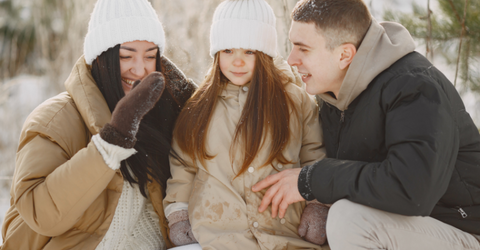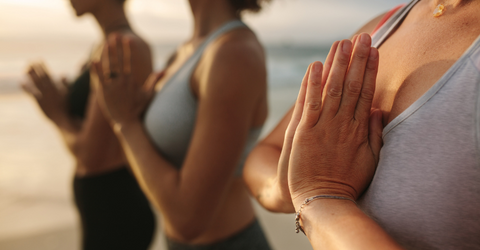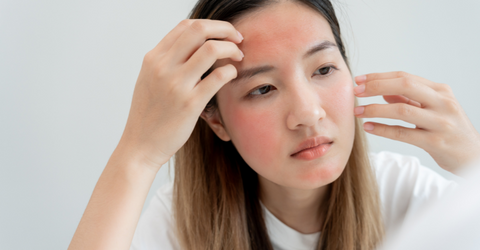As winter knocks on our door, have you ever thought how harsh it can be for you and your skin? Therefore it’s important to take all the precautionary measures on time. The cold weather includes allergic reactions and infections that could affect your health. Let's explore the winter wonderland of skincare, decode its secrets, and ensure your skin emerges victorious.
The British Association of Dermatologists is clear: both winter and summer can steal the natural moisture of your skin, but cold weather takes the lead in rendering your skin dry and your lips chapped.
During winter we mostly spend a lot of time in our heated bedrooms that makes the skin extra dry. Now, let's dive into the winter tales, discover all the causes with their prevention, and unveil the solutions and treatment that'll make your skin sing with joy.
Eczema
Welcome to the world of atomic eczema, where 1 out of 5 children and 10 adults in the UK are part of this exclusive club, as it is the most common form of eczema. Dry air in winters sets the stage for cracked skin, itchy rashes on skin, and the occasional appearance of red patches.
There are plenty of skincare you can use to keep your skin moisturised from morning to night. It’s easy to keep your body moisturised for a long time. When it comes to your hands, and as you will usually wash your hands frequently, MaGéAu Naturel hand lotion is best for skin breakdowns and will keep your hands hydrated, moisturised, soothed, and protected for a long time. The best thing about this hand lotion is that it's non-greasy, absorbs quickly and is made up of only natural ingredients.
Chapped Lips
Chapped lips – the second common side-effect of winter discomfort. The delicate skin on your lips dries faster than any other body parts due to their sensitive and delicate skin. Therefore, due to the cold and dry wind during the winter's your lips remain chapped most of the time. Only chapped? No! Also dried, cracked, peeled, itching or sore.
Acne
Contrary to popular belief, acne shouldn't only be associated with oily skin. Dry skin can also cause acne because of dead skin cells remaining stuck and causing pore blockages.
The dead skin cells will spread bacteria in your skin and will make your skin worse leading to ace symptoms your will recognise easily: whiteheads, blackheads, pustules (small red bumps containing white or yellow pus), redness around the skin eruptions, papules (small red bumps) and crusting of skin bumps leading to scarring of the skin.
Acne is a very serious skin problem but there is not anything in this world that cannot be treated. With proper care and treatment you can reduce the signs of acne even in winter.
Winter Itch
When your skin becomes a “Winter itch”, that your skin dries out and becomes itchy which results in red rashes, scaly skin, or bumps, it's time for some TLC.
Although the symptoms are similar to eczema there is a difference between the 2. Eczema is a long-term condition or disease that can be diagnosed at a young age whereas winter itch is a temporary condition. The latest occurs due to cold winter weather and can be recognised through winter itch symptoms as redness, swelling, itching and sensitivity.
Anyone can experience winter itch but it's Important to know it can be treated quickly if you moisturise your skin regularly and by avoiding wool or flannel clothing that can be irritating.
Psoriasis
Psoriasis, a chronic skin auto-immune disease that can cause red, raised and scaly patches on the skin. People who suffer from psoriasis feel sensation on their skin like burning.
People with psoriasis have difficulties managing their skin, and even more during winter, as brown, black and white patches can appear on elbows, knees, and scalp.
Guttate psoriasis is a common type of psoriasis that can even cause throat infections such as strep throat that spreads very rapidly in winter times.
Cold Urticaria
Hives, or Urticaria, in winter? It's a temporary itchy rash skin problem that is usually an allergic reaction due to the cold.
The symptoms of cold urticaria are temporary, just like winter itch that goes away in a short time. We recognise cold hives as its symptoms are making hands and lips swell.
Reach for products like loratadine (Claritin) and cetirizine (Zyrtec Allergy) – your allies in treating this cold urticaria allergic reaction.
Rosacea
Winter blush, or Rosacea, is another common side-effect of winter. It causes your face to 'blush' which makes your blood vessels more visible on your face.
Rosacea can also produce small, pus-filled bumps on your face and body. You may feel a little fever and redness on some parts of your skin, but it will quickly go away when you stay in a warm environment.
Shield your face with a scarf to protect it, avoid touching it, and let the gentle touch of moisturiser work its magic.
In Essence
Let MaGéAu Naturel be your winter skincare buddy.
We aim to help our Tribe by providing information and knowledge on different skin issues by giving professional advice. Winter is just about to come and with that, it's important to take care of yourself. As winter whispers at our doorstep, don't miss out our 10% saving with the code MAGEAU10 – your ticket to radiant winter skin.
Let the beauty adventure unfold, and remember, your skin deserves visible results, no matter the season!
Note: Before stepping into this glamorous skincare regimen, consult with a dermatologist – your trusted beauty advisor – to determine the best approach for your skin type and condition.





Comments (0)
There are no comments for this article. Be the first one to leave a message!